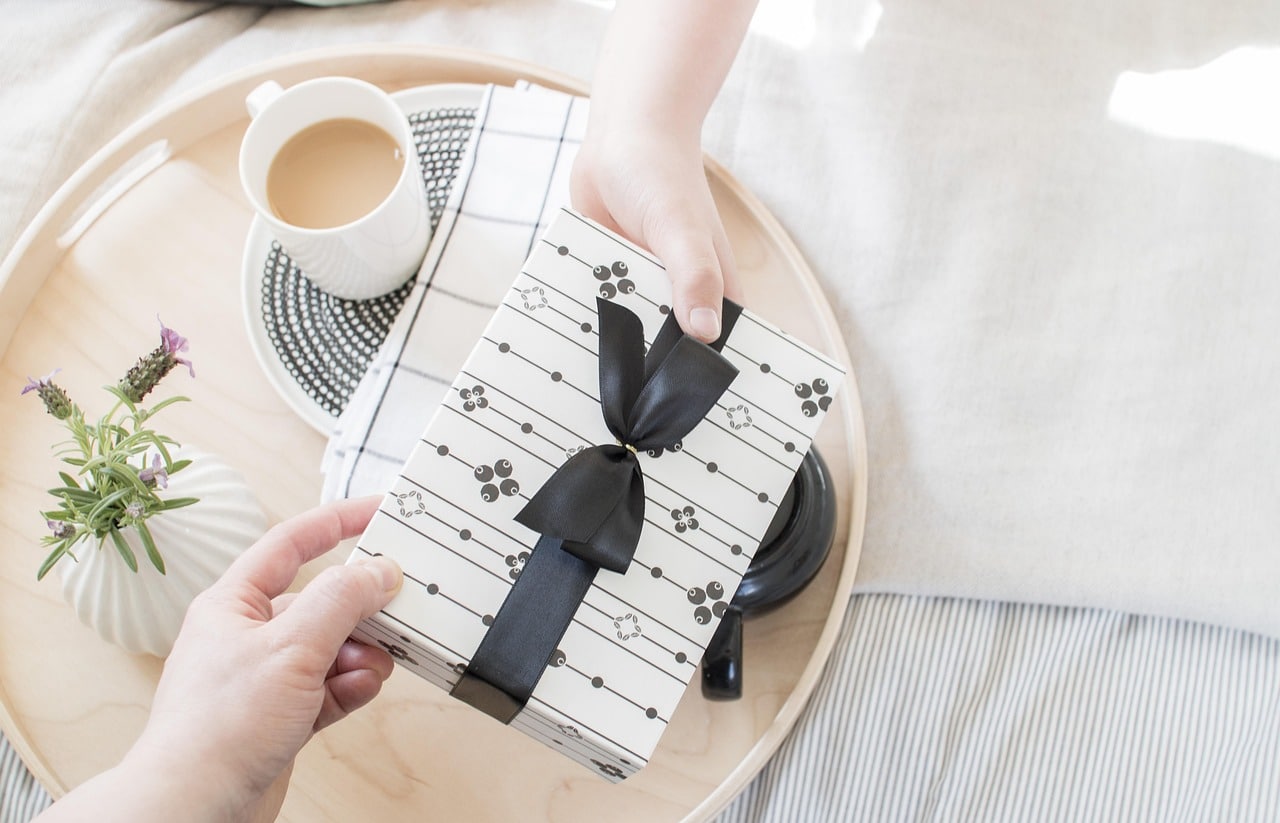
About the Author
Alyssa Wicker holds a Master’s degree in Psychology and a PhD in Marketing, with a research emphasis on consumer behavior. Throughout her graduate studies, Alyssa dedicated her work to understanding the science of positive emotions. Her unique blend of expertise in emotional psychology and marketing makes her especially equipped to explore the meaningful connections behind gift giving. In “Unwrapping Happiness: The Psychology of Giving Gifts,” she draws from both science and heart to uncover why small acts of generosity can deliver such big joy.
Have you ever watched someone’s face light up as they unwrap a thoughtful gift? There’s something magical at that moment, something deeper than ribbons and wrapping paper. Gift giving isn’t just a kind gesture or a holiday tradition; it’s a deeply human experience. In this post, we’ll explore the psychology of giving, the importance of giving to others, the reasons we give gifts, and the health benefits of giving, all while uncovering how small acts of kindness can bring big joy for both the gift giver and the receiver.
The Psychology of Giving
Gift giving is a cooperative action that has evolved throughout human history to help us form social bonds and foster connections with others. Gift giving can be motivated by pure altruism, empathy, or a desire to belong (one of the basic building blocks of happiness according to Deci and Ryan’s Self-Determination Theory). From a neuroscience perspective, the act of giving triggers a flurry of activity in the brain’s reward centers. Generosity activates the reward centers, releasing dopamine (the “feel-good” hormone), oxytocin (which fosters trust and connection), and endorphins (which reduce stress and pain). This neurochemical cocktail is what creates the “helper’s high”, a surge of happiness similar to the rush after exercise. Whether you’re donating to a cause, helping a friend, or picking out the perfect box of caramels for someone special, your brain recognizes it as a meaningful act and rewards you for it.
The Importance of Giving to Others
Giving isn’t just about the recipient; it’s a profoundly rewarding experience for the giver, too. When we give to others, whether through gifts, time, or acts of service, we tap into a powerful emotional and social current that elevates our well-being and strengthens our communities.
Emotional Benefits of Giving
At a personal level, giving lifts our spirits. It improves mood, creates a deeper sense of purpose, and boosts self-worth. Studies show that helping others, whether through gift-giving, volunteering, or random acts of kindness, releases feel-good chemicals in the brain, making us feel more fulfilled and emotionally resilient.
Social Impact of Giving
Giving naturally draws people closer. It fosters stronger relationships, encourages mutual trust, and builds social cohesion. A well-timed gift can bridge emotional gaps, mend old wounds, or simply remind someone that they’re valued. In this way, giving becomes a social glue that keeps relationships thriving.
Giving’s Cultural Significance
Across cultures and generations, giving plays a central role in traditions, rituals, and community-building. From holiday celebrations and religious practices to birthdays and milestones, gift-giving reflects shared values and helps preserve cultural identity. It’s an expression of connection that transcends language.
Addressing Societal Issues
Beyond personal and cultural benefits, giving can be a tool for social change. Donations, charitable gifts, and community support help address larger issues like poverty, isolation, and mental health. Even small acts of generosity contribute to a larger ripple effect that uplifts entire communities.
Why Do People Give Gifts?
Why do we give gifts? The answer isn’t just “because we’re supposed to.” People give gifts to:
- Express love, appreciation, and gratitude
- Celebrate milestones or special occasions
- Offer support or encouragement
- Communicate feelings that words can’t capture
Gift-giving is a non-verbal language. It conveys emotion, builds trust, and creates shared memories. It’s how we say, “I see you,” “I care about you,” or even “I’m thinking of you,” without saying a word.
Reasons to Give a Gift
We give gifts for countless reasons—some big, some small. Here are a few:
- Appreciation: To say thank you.
- Celebration: Birthdays, holidays, graduations, new jobs.
- Connection: To build relationships like with clients, or to stay close to loved ones.
- Apology or forgiveness: To mend a relationship.
- Spontaneous joy: Just because.
And here’s the best part: it doesn’t need to be extravagant. A single, beautifully crafted caramel from Santa Ana Sweets can be enough. Thoughtful. Personal. Joyful.
Giving and Happiness
It’s true, giving makes us happier than spending on ourselves. Research confirms that giving increases overall life satisfaction, boosts our mood, and creates lasting feelings of joy.
When we give, we’re not only spreading happiness outward; we’re filling our own emotional cup, too. The psychology of giving is a cycle: giving brings happiness, and happiness makes us want to give more. One gift can spark an upward spiral for yourself and others.
Health Benefits of Giving
Giving isn’t just good for the heart metaphorically; it’s good for your health, literally.
Mental Health Benefits:
- Reduces stress and anxiety
- Increases self-worth and self-esteem
- Decreases depression and loneliness
- Fosters emotional resilience
Physical Health Benefits:
- Lowers blood pressure
- Improves heart health
- Strengthens the immune system
- Promotes longer life expectancy
All of this means giving is a powerful form of self-care. It doesn’t take much, sometimes, all it takes is one sweet gesture.
Gifting Culture and Self-Care
Modern gifting culture is shifting away from materialism and toward meaningful, intentional giving. It’s not about how much you spend, it’s about how much thought you put into it.
Giving is also a form of self-care. When you take the time to brighten someone else’s day, you nurture your emotional well-being. And don’t forget: you can give to yourself, too. Treating yourself to a caramel isn’t an indulgence. It’s self-kindness.
A Sweet Example: The Joy in One Caramel
Sometimes, the most meaningful gifts aren’t the biggest; they’re the most intentional. A single handcrafted caramel from Santa Ana Sweets can hold more thoughtfulness, warmth, and joy than a box full of forgettable items.
In a world that often feels rushed and overloaded, a small, beautifully wrapped box of caramels stands out. It’s proof that a simple, heartfelt gesture can deliver real joy.
You don’t need to wait for a holiday or special occasion. Start small. Give with intention. Offer one caramel, one note, one sincere moment, and watch how far the ripple spreads. Because joy doesn’t come from the size of the gift: It comes from the love behind it.
Unwrap Happiness
Giving is more than a social ritual; it’s an emotional, psychological, and even physical gift to ourselves and the people we care about. From improved mental health to stronger relationships, the benefits of giving are as sweet as they are scientifically proven.
So today, consider this: what’s one small gift you can give? A kind word, a handwritten note, or maybe a box of caramels from Santa Ana Sweets.
Unwrap happiness. One sweet act at a time.






